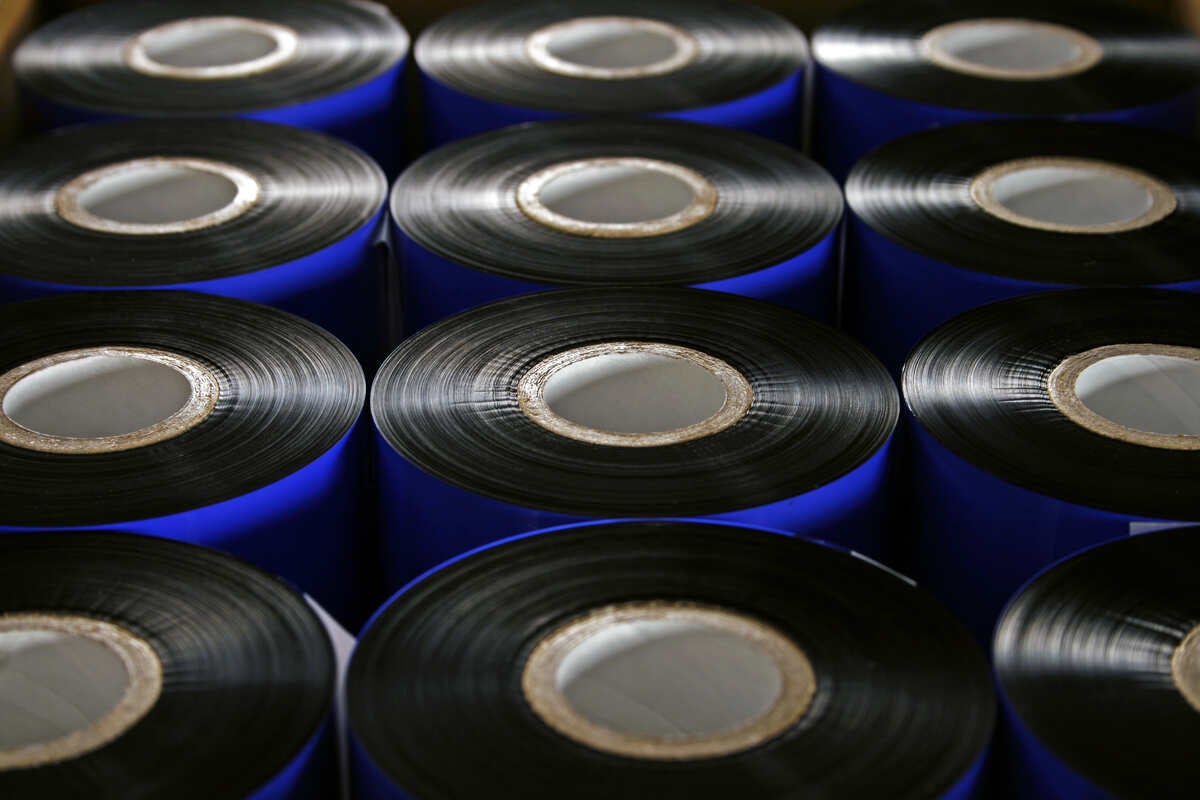Tech Tips
Plug 'n' Play? No Way!

Important Considerations When Switching Resin Thermal Transfer Ribbons
In a perfect world, it would be possible to purchase one thermal transfer ribbon and have it work on all facestocks for all applications. It would even be nice to have one ribbon work across the board on just one type of facestock – say, two mil polyester. Unfortunately, life isn’t that simple.
We sat down with specialists from ITW Thermal Films who recently completed extensive comparison testing with a range of label substrates and ribbons. Here’s what they had to say.
What prompted you to embark on this testing project?
We receive many calls from customers who have tried to switch from Company A’s Resin X Ribbon to company B’s and found that it didn’t work. They want to know why. With a few questions and either some printer setting changes or another ribbon recommendation, we are usually able to find something that works. Consequently, we wanted data points to provide to customers so they could understand why one ribbon doesn’t work on every label or is not resistant to every chemical in the world. So, we decided to try a short but comprehensive test study. We set out to determine the variance among a selection of ribbons on multiple brands of the same film type with a variety of chemical exposures.
How extensive was the testing?
We tested four of the leading topcoated polyesters with 15 resin ribbons from the top ribbon manufacturers and exposed printed samples to 15 different household chemicals. The print speed target was five inches per second. Print temperature was optimized for each ribbon/label combination. The chemical test was conducted by soaking a cotton swab in the given solution and rubbing the printed image 20 times with moderate pressure. Examples of chemicals include isopropyl alcohol, hand sanitizer, gasoline, xylene, acetone, perfume, corn oil, mineral spirits and Goo Gone®*.
And the results?
They were surprising! There wasn’t one ribbon that performed exactly the same on each label stock and consistently resisted all of the chemicals tested. There were two ribbons that were what we call “shining stars,” and they were not the two ribbons we expected!
What advice would you give buyers?
Just because a ribbon works on one label substrate doesn’t mean it will work on another. Furthermore, there are a lot of new ribbons on the market that may appear to be equivalent, but actually aren’t. Any component change, even from one polyester to another, could change performance, so fit-for-use testing is critical. And waiting to test inline can be costly. If it doesn’t perform as necessary, it could throw off your entire production cycle. Better to take the time to test beforehand to ensure you can meet your timeline and give your customers the turnaround and performance they expect.
The same is true for equipment changes. You may not be able to achieve the same result with one printer as with another. Just because a sales person tells you, “It will work fine” is no guarantee. Do your due diligence. You won’t regret it.
Finally, the regulations keep changing. We retest every 2-3 years to ensure that any change in our process hasn’t affected performance and to be sure we’re still in compliance with regulations such as UL/cUL, REACH and RoHS.
What things should a printer take into consideration when choosing a different ribbon?
Knowing what your label will come up against is critical. What chemical(s) will it need to resist? Will it be in the form of a vapor or liquid? Will the chemical be wiped across the surface of the label? All of these things can impact the durability and legibility of the printed label.
Also, providing all relevant details to your supplier is necessary for them to make a proper recommendation. When they ask what film you’re currently using, they need more information than “polyester.” They need to know the manufacturer and the product number. The same is true for ribbon information. Only telling them it’s a “foil” or a “black ribbon” isn’t enough. Is it wax, wax/resin or resin? Who makes it? The more information you can provide, the more likely it is that you’ll be pointed in the right direction toward an alternative that will provide comparable performance.
Need help testing an alternative ribbon or film? Our Technical Response Lab can help.
*Goo Gone® is a registered trademark of Weiman Products LLC.